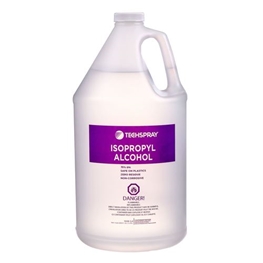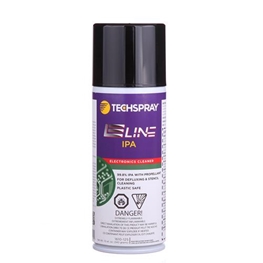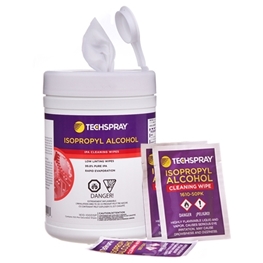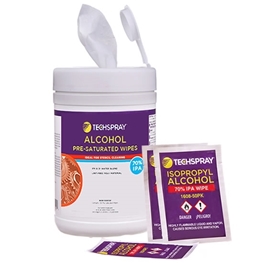Methanol is a toxic cousin of common (and much safer) alcohols commonly used for disinfecting hard surfaces: ethanol (aka ethyl alcohol) and isopropanol (aka isopropyl alcohol, IPA). Of course, all of this started with the COVID-19 pandemic and the new coronavirus called SARS-COV-2. The CDC (Center of Disease Control) recommends, among other things, 70% or higher alcohol be used to kill the virus (see linked references in sources below). That has led to a scramble for alcohol-based hand sanitizers and surface cleaners. With such a spike in demand, traditional supply chains were stressed, opening the field for opportunistic players with questionable products.
What is Methanol?
Methanol is often called “wood alcohol” because it was originally derived from the distillation and fermentation of sugars in wood. Chemically, methanol is very similar to ethanol (“grain alcohol” – more on that below), but those differences are enough to make methanol considerably more toxic. There are appropriate uses for methanol, for example in industrial products where appropriate PPE (personal protection equipment) is used. Consumer hand sanitizer is certainly not one of them!
Per the FDA warning, when ingested or absorbed through the skin (!), methanol has been shown to cause health problems “including blindness, cardiac effects, effects on the central nervous system, and hospitalizations and death…”. Methanol can also cause other toxic chemicals to be more readily absorbed through the skin.
Why Is Ethanol and Isopropyl Alcohol Better?
Ethanol can be naturally produced by the fermentation of sugars by yeasts or by a petrochemical process. In the US, the sale of ethanol is highly regulated because the same chemical used for cleaning makes a dandy cocktail. To keep these uses separate, manufacturers are required to use denatured ethanol for uses outside of drinking. A denaturant is an additive that makes the ethanol poisonous and/or taste bad, and can include other alcohols like isopropyl alcohol. Be warned, those denaturants can also make the end product more toxic, so potentially inappropriate for hand sanitizer.
We are all familiar with the distinctive odor of isopropyl alcohol (IPA) from visits to our dentist or doctor. It is a very common method of disinfecting hard surfaces in the US, in addition to degreasing and flux removal in manufacturing facilities. IPA is considered poisonous if ingested, but doesn’t have the toxicity concerns of methanol.
For hand sanitizer, which by its very nature puts you in direct contact with the material, ethanol (with appropriate denaturant) and isopropyl alcohol are much safer options compared to methanol.
Importance of Reputable Brands
So if methanol is so nasty, how did it get into hand sanitizer? Was this on purpose, or accidental contamination? Those are great questions, and probably not possible to answer at this time. While it is possible manufacturers have formulated hand sanitizers with lower cost, more toxic solvents, it also could have been inadvertent in an attempt to service the sudden spike in demand. In either case, looking for ingredients on the label or safety warnings won’t help.
That shines a light on the importance of staying with reputable brands, like Techspray, for chemical products. As an example, Techspray has been an established commercial brand since 1968, so we have a vested interest in maintaining the integrity of our products and the trust of our customers. This starts with how we source our raw materials, handle them in the manufacturing process, and are able to trace from start to finish.
As you read through the FDA do-not-use list, it becomes obvious that none of the products were major consumer or commercial brands. Manufactures like 4E Global, SAPI de CV and AAA Cosmetica are not well known to the general public, but they have been supplying to major retailers and distributors as unknown private label brands or store brands.
A major and trusted retailer may have the best intentions in mind, but they lack to direct knowledge of the raw material supply chain, and the deep understanding of the original manufacturer. By picking up an established brand, whether that be Techspray or Clorox, you are putting faith in a company’s experience, dedicated resources, and vested interest in making sure the products have no problematic contamination.
How to Identify and Avoid Contaminated Products?
As mentioned above, if a product is unintentionally or purposely contaminated, the SDS (safety data sheet) or label may not be much of an assurance. If buying a reputable brand from a reputable source (which assures it isn’t counterfeit – an entirely different and complicated subject), there are a few telltale ways to identify that it contains methanol:
- Ingredients on the product label should state “methanol”, “methyl alcohol” or CAS number 67-56-1.
- If in a commercial product, the label and SDS should have the GHS (global harmonized system) pictogram for chronic toxicity.

- If sold in California, the product label should have the Prop65 symbol and warning.
WARNING: This product contains methanol a chemical known to the State of California to cause birth defects or other reproductive harm.
Of course, if you see any of this on a hand sanitizer, avoid using it. If you see these on a cleaner or another type of commercial product, make sure you use the appropriate PPE as specified by a health and safety professional and/or the SDS. If you see a product that only states “alcohol” in the ingredients, it is in your best interest to be sure. Alcohol is a common term for ethanol, but check the SDS to play it safe.
Techspray is dedicated to doing everything possible to make sure all of our products are effective and safe if used properly, and that labels and SDS accurately provide you the guidance you need. Please contact us at
31 0 88 130 7400 or
techspray@itw-cc.com if you have any questions or concerns.
This article has been written by Kevin Pawlowski, Marketing Communications Manager
Note: Techspray does not manufacture or sell hand sanitizer, but offers alcohol-based products that are commonly used for surface cleaning.












